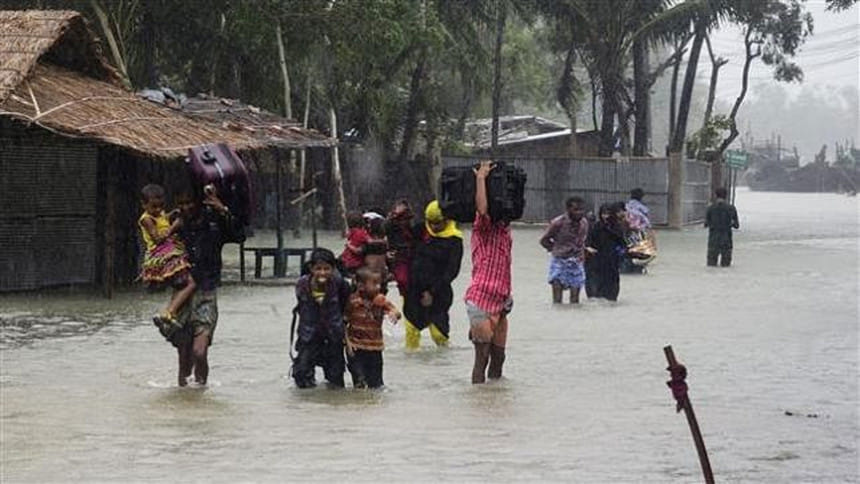2030 not 2050 should be our climate goal

We are seeing a growing number of brands, retailers and manufacturers setting climate targets at present. In many cases they are establishing science-based targets aimed at limiting global warming to 1.5 degrees Celsius above pre-industrial levels. Others are setting long-term targets of reaching net-zero emissions by 2050 and signing up to programmes such as the Science Based Targets initiative (SBTi).
Individual countries are also setting their own climate targets, with the aim of remaining in line with the Paris Agreement. In many cases, carbon offsetting schemes are being used to help achieve these targets.
I welcome moves by our industry in showing ambition on climate issues. It is clear that most of us are now pulling in the direction, and those that fail to embrace climate challenges will be left behind.
My concern, however, is that we are not being ambitious enough and are failing to realise the urgency of the situation we are currently in. There seems to be a lot of tinkering around the edges of this huge issue but a lack of action at genuine scale.
I have read extensively around this issue and the expert consensus points towards a number of conclusions.
The first of these is that 2050 targets are not enough. They are simply too far away and lack ambition. Many experts are calling, instead, for 2030 zero carbon targets and suggesting that we should simply get on with the matter of reducing carbon emissions as a matter of extreme urgency. We can't wait for another 30 years because, as we have seen, climate issues are volatile, and we simply do not know what is around the corner.
Consider also that, as humans, we have a tendency to put things off which we find difficult or challenging and instead focus on the simpler tasks at hand. Is there a risk that businesses may let things drift between now and 2050? For instance, they might start focusing on carbon offsets to achieve their goals—which can be easily purchased—rather than the difficult business of emissions reductions? This is my fear—that we will drift between now and 2050 and that long-term targets will provide too much opportunity for inaction.
The other concern is that in order to be carbon neutral by 2050, businesses and governments will need to achieve huge net reductions in carbon emissions. In many cases, they will need to adopt a completely different way of doing business.
I do not see much evidence of this at the moment. Net reductions in carbon are difficult to achieve for any business, let alone a growing business. Remember, if a large fashion brand is growing its global footprint by 10 percent a year in terms of volumes, reducing its carbon emissions—particularly in supply chains—becomes a huge ask. It would need to achieve a 10 percent net reduction in carbon emissions just to stand still.
It is worth noting that these brands cannot achieve climate targets on their own; they are dependent on their supply chain partners. In many parts of the world, supply chains are still heavily reliant on coal-fired power generation and the shift to renewable energy is long and arduous, bringing with it financial, logistical and political challenges.
Switching to renewable energy is critical in the battle to reduce climate impacts yet the move to renewable energy is slow and can take years. It takes time, effort and money.
The analogy I would draw here is with a huge cargo ship travelling in the wrong direction. It's a monumental effort to turn around. That's where our industry is right now—we have only just begun the process of changing the direction of the ship but the task is mammoth.
So what is our industry doing? I see a lot of fine initiatives, a lot of willing and a great deal of noise. But there is also a concerning sense that we have still not fully grasped the urgency of the situation we face.
It feels at times like everybody is looking around to see what others are doing on the climate issue and nobody alone is taking clear, decisive and radical action. Note the emphasis on that word radical because this is what we need right now if we are to avoid sleepwalking into a climate disaster. I am talking about huge, collaborative investments in renewable energy projects and massive supply chain decarbonisation programmes.
We have to start thinking big—and now.
I look at the impact of climate change and, from a purely nationalistic perspective, I also have serious concerns about my native land. Bangladesh is a country which is considered especially vulnerable to climate change, with one-third of the population at risk of displacement because of rising sea levels. This is also driving my own personal sense of urgency on this issue.
To go back to the original proposition of this article, I think that talk of 2050 targets is dangerous and misguided at a time when we need urgent action. From a purely psychological perspective, it gives people the chance to keep kicking the climate can down the road rather than planning now for the huge actions we all need to be taking—the massive changes we need to make to our lives.
I believe we all require a greater sense of urgency and would prefer that short, five-year targets be set, with hugely ambitious goals based on significant net reductions in emissions.
Of course, national governments are not going to change 2050 targets but there is no reason at all why individual businesses cannot set their own goals on these issues. Remember, globally we will only reach our objectives if everybody does their part; relying on others will doom us to failure.
So I urge my compatriots and their customers—brands and retailers—to look at what they are doing now and think about how they can do it more sustainably. We all accept that there is a need to reduce carbon levels at some point, so why not start the hard work now rather than leave it till a time when it may be too late.
Mostafiz Uddin is the Managing Director of Denim Expert Limited. He is also the Founder and CEO of Bangladesh Denim Expo and Bangladesh Apparel Exchange (BAE).

 For all latest news, follow The Daily Star's Google News channel.
For all latest news, follow The Daily Star's Google News channel. 



Comments